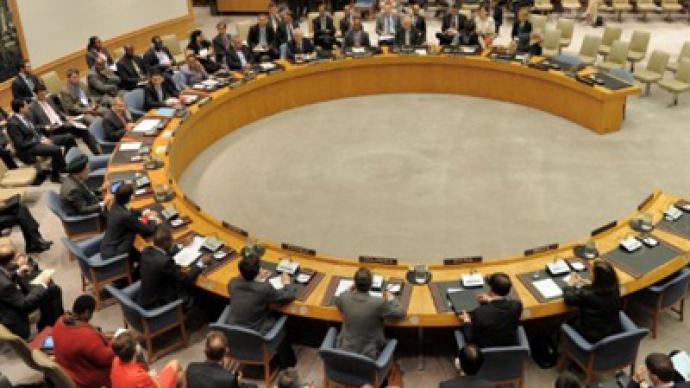The Syrian opposition lacks the co-ordination their Libyan counterparts had and clear leadership, former UK ambassador to the country Basil Eastwood believes. He does not expect the situation to be resolved quickly.
“The demonstrations have been largely spontaneous, and there is no coherent leadership. But it’s becoming clearer to the men on the Syrian streets that they have got to have an alternative proposition if a regime change is to happen without massive bloodshed. So the pressure is on them,” Eastwood, who had worked in Damascus from 1996 to 2000, told RT.“So far there have been no signs of the core of the regime crumbling, but as the economy deteriorates, as the big business which has supported the regime sees that its future cannot lie that way, I think we are going to see more defections from the regime and there will come a point – within months rather than years – when things quite rapidly fall apart,” he added.The relative peacefulness of Syrian protests so has to do with the opposition, whom Eastwood hails for its efforts to keep the violence at bay.“The activists who have led the demonstrators to the streets are largely unknown people, with tremendous courage and determination. And their political views of what should happen with Syria are also largely unknown,” Eastwood said. “But you can say that it won't be sectarian, but will have a will for Muslim brotherhood, which is in Syria’s case relatively modern-minded and prepared to play along with coalition politics. It will be a regime mainly concerned with internal problems, not indulging in adventurism vis-à-vis Israel or anyone else.”Eastwood has little faith in the sanctions proposed by the West, as “the collapse of tourism will harm ordinary Syrian people more than any sanctions,” and he believes that none of the global powers are interested in a military intervention in a situation that is “so complicated on the ground.”Regional players, in turn, have their own view, Eastwood, who had held posts in Saudi Arabia and Egypt as well, believes.“Many of the governments in the Middle East are profoundly worried about Iran and don't like that what is happening in Syria because it may increase the Iranian influence. The Iranian government itself doesn't like to be seen as the main principal supporter of a regime that is using violence in this way. There have been signs of Iranian embarrassment over this,” Eastwood noted.


